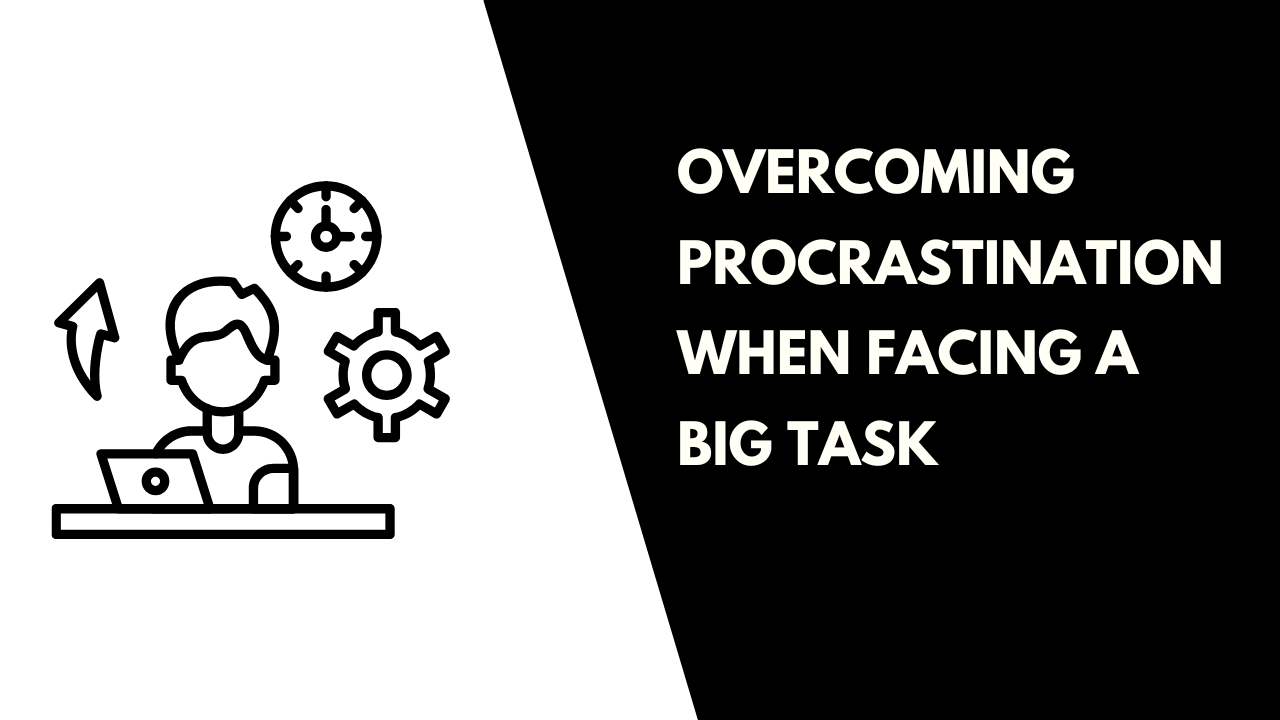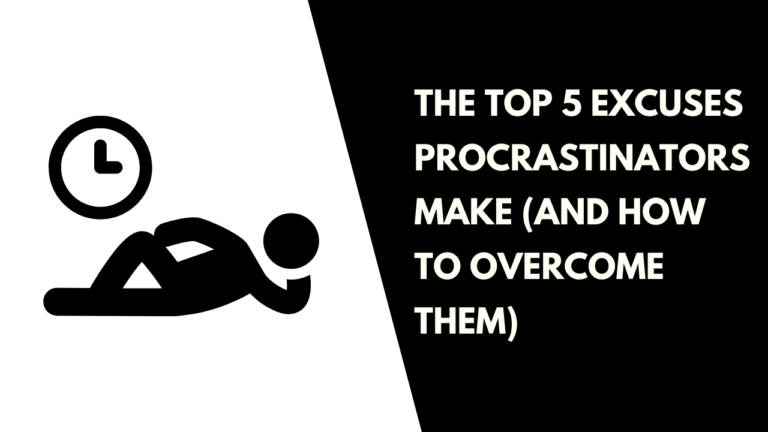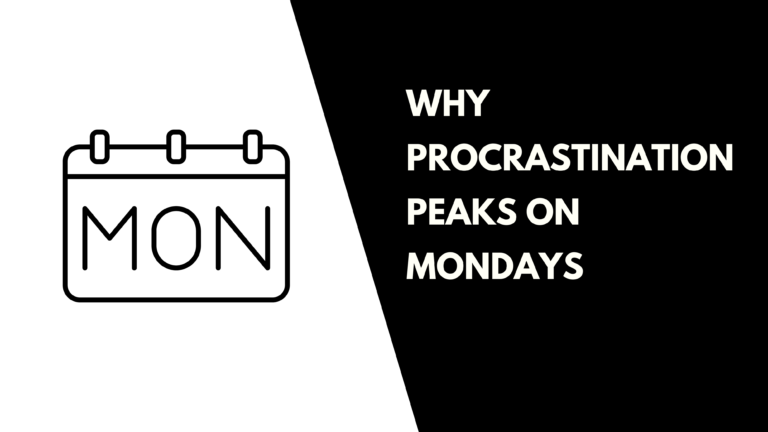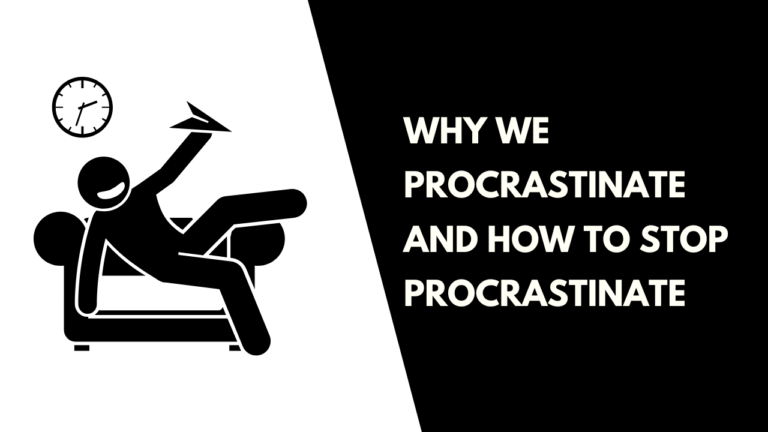Overcoming Procrastination When Facing a Big Task
Overcoming Procrastination When Facing a Big Task
We’ve all been there—staring at a massive task, feeling overwhelmed, unsure where to start, and suddenly finding ourselves scrolling through social media, watching one more episode, or reorganizing the bookshelf. The bigger the task, the harder it is to begin. But why does this happen, and more importantly, how can we push through?
Table of Contents
ToggleIn this blog, we’ll dive into the psychology behind procrastination, why big tasks feel intimidating, and how you can start Overcoming Procrastination effectively with practical, real-life strategies.
Why Do We Procrastinate on Big Tasks?
When faced with a big task, our brain perceives it as a threat—something difficult, exhausting, or stressful. Instead of tackling it head-on, we instinctively seek comfort through distractions. This behavior is tied to our brain’s fight-or-flight response, where avoiding the task gives short-term relief but leads to long-term stress.
Common Reasons for Procrastination on Big Tasks:
- Fear of Failure – “What if I mess up?”
- Perfectionism – “I want it to be perfect, so I’ll wait for the right time.”
- Lack of Clarity – “I don’t even know where to start.”
- Overwhelm – “This is too much to handle.”
- Instant Gratification – “I’d rather watch Netflix than struggle with this.”
Sound familiar? Let’s break this cycle with proven strategies for Managing Procrastination and regaining control.
Step 1: Break It Down into Small Steps
The biggest mistake people make is looking at the entire task as one giant entity. Instead, break it into smaller, manageable steps.
Example:
Imagine you need to write a research paper for work or college. Instead of thinking, “I need to write a 5,000-word report,” break it down like this:
✅ Research the topic (Day 1)
✅ Create an outline (Day 2)
✅ Write the introduction (Day 3)
✅ Draft the first section (Day 4)
Each step feels easier to accomplish, making Overcoming Procrastination less overwhelming.
Step 2: Use the “5-Minute Rule”
When your brain resists starting, trick it by committing to just five minutes. Tell yourself, “I’ll work on this for only five minutes.”
Example:
If you need to clean your messy room but keep postponing it, set a timer for five minutes and start. Once the momentum kicks in, you’ll likely continue past five minutes. This method reduces resistance and makes Managing Procrastination easier.
Step 3: Set Clear Deadlines (Even If There Aren’t Any)
Without a deadline, tasks stretch indefinitely. Setting your own deadline creates urgency.
Example:
A friend of mine wanted to launch a blog but kept putting it off. The breakthrough? She publicly announced a launch date, making it non-negotiable. Suddenly, she had accountability and a reason to act.
Even self-imposed deadlines can significantly boost motivation for Overcoming Procrastination.
Step 4: Eliminate Distractions Before Starting
Most procrastination happens because distractions are too accessible. Remove them before you begin.
Example:
Let’s say you need to prepare for an important work presentation. Before starting:
✅ Turn off phone notifications
✅ Close unnecessary browser tabs
✅ Use website blockers like Cold Turkey or Freedom
By controlling your environment, you make Managing Procrastination much easier.
Step 5: Use the “Temptation Bundling” Technique
This strategy, developed by behavioral scientist Katy Milkman, involves pairing an enjoyable activity with a necessary but unpleasant one.
Example:
If you hate exercising but love listening to audiobooks, only allow yourself to listen while walking on the treadmill. The enjoyable activity (audiobook) becomes the reward for completing the less appealing task (exercise).
This method is excellent for Overcoming Procrastination because it makes difficult tasks more appealing.
Step 6: Reframe the Task in a Positive Light
Instead of viewing the task as a burden, see it as an opportunity.
Example:
Instead of thinking, “I have to prepare for this boring work report,” shift your mindset to:
✔ “This report will help me stand out in my job.”
✔ “Finishing this will make me feel accomplished.”
A mindset shift can drastically improve motivation for Managing Procrastination.
Step 7: Hold Yourself Accountable
Accountability can come from a friend, mentor, or even a public commitment.
Example:
When I was writing my book From Delay to Done, I told my readers I would publish it within six months. That external accountability pushed me to stick to my schedule.
Find someone who will check in on your progress, making it harder to procrastinate.
Step 8: Reward Yourself for Progress
Procrastination thrives on discomfort. To counter it, create a reward system.
Example:
If you finish a challenging task, reward yourself with something small—watching your favorite show, having a treat, or taking a break. Knowing there’s a reward waiting keeps you motivated for Managing Procrastination.
Step 9: Visualize the End Result
Imagining the satisfaction of completing a big task can be a powerful motivator.
Example:
If you’ve been delaying starting a business, picture the day you launch it—the joy, freedom, and success. That mental image can push you toward action.
Step 10: Just Start (Even If It’s Imperfect)
Perfectionism kills progress. Instead of waiting for the perfect moment, start with an imperfect first step.
Example:
A friend of mine wanted to create YouTube videos but kept delaying because she wanted everything to be perfect—her script, camera, and editing. One day, she finally recorded an imperfect video and uploaded it. To her surprise, people loved it. Starting, even imperfectly, is the best way to get things done.
Final Thoughts
Big tasks can feel overwhelming, but Overcoming Procrastination is possible with the right strategies:
✔ Break tasks into smaller steps
✔ Use the 5-minute rule to get started
✔ Set deadlines and eliminate distractions
✔ Use temptation bundling and rewards
✔ Shift your mindset and visualize success
Remember, procrastination isn’t a time management problem—it’s an emotional regulation problem. The more you understand and implement these strategies, the easier Managing Procrastination becomes.
What big task have you been avoiding? Try one of these techniques today, and let me know how it goes! 🚀
“Stop postponing your dreams! From Delay to Done is your ultimate guide to conquering procrastination. Grab your copy today on Amazon!







